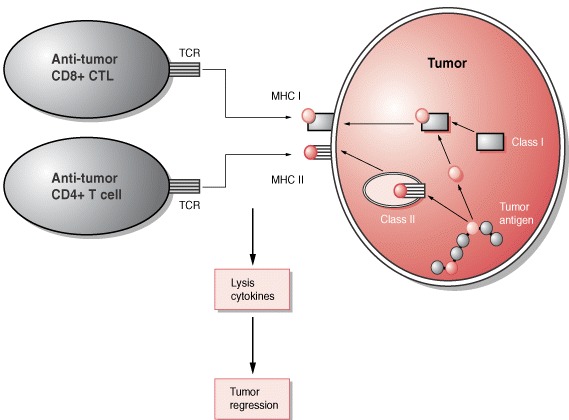Check the cancer peptide database for a list of tumor peptides.
Tumor antigens can be classified into two categories based on their expression pattern: tumor-specific antigens (TSA) and tumor-associated antigens (TAA).
Targeting tumor-associated antigens (TAAs) is a promising approach for cancer immunotherapy. Neoantigens are tumor-specific antigens originating from somatic mutations in cancer cells but not healthy tissues. So the TAAs are considered as ideal targets for novel immunotherapies. Antigens of three classes can induce tumor-specific T-cell responses.
1. Antigens derived from viral proteins: Viral proteins are produced inside the tumor cells. So the antigenic peptides can be detected by T cells.
2. Antigens derived from point mutations: Many CTL isolated from the tumors were found to recognize antigens that arise from point mutations in ubiquitously expressed genes. These mutations are passenger mutations, and the corresponding antigenic peptides are unique to the tumors in which they were identified.
3. Antigens encoded by cancer-germline genes: Cancer-germline genes are expressed in many cancer types and not in normal tissues except germline and trophoblastic cells. The tumor-specific pattern of expression results from the genome-wide demethylation in male germ cells.
A large number of antigenic peptides recognized by antitumor CTL have been identified. Candidate peptides can be synthesized and tested for HLA binding in vitro. The elution of antigenic peptides from MHC class I molecules immunopurified from the surface of tumor cells can be used to identify the antigens. TAAs can be targeted using peptide vaccines or by cellular approaches. The delivery of new peptide drugs might show great promise for future therapies.
LifeTein can customize a discovery and development path to fit your exact needs for peptide synthesis.

